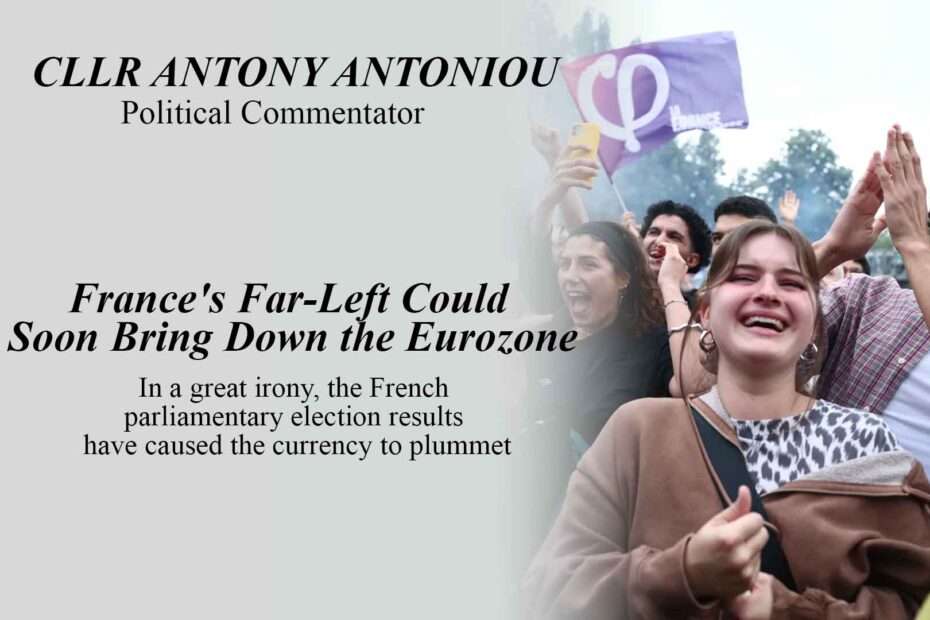France’s Far-Left Could Soon Bring Down the Eurozone
In a great irony, the French parliamentary election results have caused the currency to plummet
The populist threat has been crushed. The “far-Right” has been blocked from forming a government, and a financial crisis has been averted. With the surprising results from the French elections last night showing Marine Le Pen’s National Rally dropping to third place in the new Parliament, it would be easy to assume that the country was getting back to normal. But hold on. The election massively strengthened the far-Left – and it is the Marxist extremists that pose the real threat to the survival of the single currency.
Compared to the UK’s election, France’s was certainly a shock. With the final votes tallied, Le Pen’s NR and its allies won only 143 seats in the new Parliament, President Macron’s Ensemble secured 168, and the New Popular Front won 182. Although the NR won 37 per cent of the votes, far more than any other party, tactical voting in a two-round system meant it was locked out of power. Here’s the problem, however. Blocking Le Pen also meant handing a huge increase in power to a New Popular Front dominated by Jean-Luc Melenchon’s France Unbowed. And ironically, it is even more extreme than the NR.
In reality, the Popular Front’s manifesto makes Jeremy Corbyn look like a moderate. It promised 150 billion euros in extra public spending, increasing public sector salaries by 10 per cent immediately, making transport free, and lowering the retirement age back to 62, with longer-term plans to hire more teachers and healthcare workers and invest more in green energy. It would pay for all of that with higher corporate taxes, with a wealth tax, and by borrowing more money.
The NR had plenty of plans for spending more money too, and had nothing to say on liberalising the economy, or restoring its competitiveness, but the Popular Front is far more radical. Indeed, an analysis by Bloomberg showed debt as a percentage of GDP rising to almost 130 per cent by 2027 under the Popular Front, compared with 120 per cent for the NR, and 110 per cent under Macron’s outgoing government.
That is not all. A far-Left administration in Paris is far less likely to accept the discipline of the bond markets and the credit rating agencies than the Right. As bonds started to sell off in anticipation of an NR government, the party started to water down its plans, and showed signs of accepting fiscal constraints. By contrast, the Left doubled down on extra spending.
With a visceral hostility to the “markets”, and a history of currency controls – Francois Mitterand’s Communist-Socialist government of the early 1980s imposed an annual limit of $450 on foreign spending and banned the use of credit cards abroad – it will be far more willing to take on the financial markets to stop money flooding out of the country. It does not have to “detoxify” itself to win power in the way that Le Pen’s party has to. Voters are far more willing to accept it on its own terms. And perhaps most importantly, it is very hard to see the European Central Bank stepping into the market to rescue a far-Left government.
The harsh reality is this. French voters, even more than British ones, have become addicted to vast and rising levels of government spending. Almost 80 per cent of the electorate voted for a big increase in the deficit. It might get away with that for a few more years. And yet, it is not sustainable within a single currency.
Other countries made genuine sacrifices to stay within the currency zone – Greek GDP for example is still well below its 2000 level – but the French refuse to do so, complacently assuming they will be bailed out by their neighbours. Sooner or later that will bring the system crashing down – and ironically the newly emboldened far-Left is far more likely to trigger that collapse than the Right.

